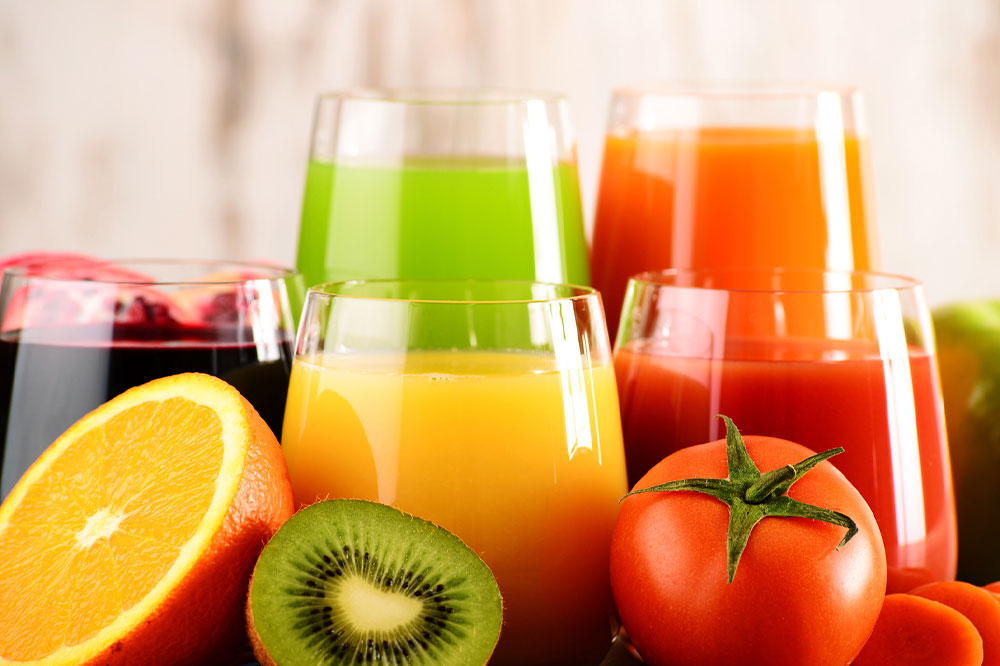Foods to be avoided by diabetes patients

Food gets broken down into glucose by the body to release energy for its functioning. Most meal plans combine fats, proteins, sugars, and other essential carbohydrates vital for healthy growth and organ function. However, people with diabetes should be careful about seemingly healthy foods as it can trigger a spike in their blood glucose levels. Here are different foods that are bad for diabetes and should not be eaten regularly:
Various foods that are bad for diabetes patients
Fruit juices and other drinks
Sugar consumption via beverages can spike insulin levels drastically. Did you know that lots of seemingly healthy store-bought fruit smoothies, sports drinks, bottled juices, and sodas can spike blood sugar levels too? Also, natural fruit juices are not necessarily a healthy option as they are high in fructose. Aside from this, cola, iced tea, lemonade, and other flavored beverages are excessively high in carbs, sugar, and fructose. Their regular consumption can trigger insulin resistance, forcing healthy cells to reject insulin and extract glucose for energy. Another crucial thing to remember is to avoid any type of spirit if you have diabetes. These contain empty calories and can worsen the condition significantly.
Cereals, yogurt, and dried fruits
Daily breakfast cereals are fortified with essential vitamins and nutrients that make up for a wholesome meal. However, most store-bought cereals are also high in carbohydrates and added sugars that can trigger an instant spike in blood glucose levels. Another seemingly healthy food, yogurt is an excellent probiotic necessary for the body to maintain and improve gut health. But, flavored yogurts or yogurt with assorted berries can cause more harm than good to diabetes patients. Additionally, while dried fruits can be had in moderation, it is advisable to stay clear of sweetened berries and raisins. Also, avoid consuming canned fruits as they contain preservatives and artificial sweeteners.
Baked goods and sugar substitutes
Any excess sugar the body cannot process can eventually trigger complications linked to type 1 and 2 diabetes. Sugar is basically empty calories, meaning its consumption adds no nutritional value. Avoid all biscuits, baked goods, and confectioneries made with refined sugars as a diabetes patient. You should also stay away from any fortified snacks that may be healthy but contain added sugar. Even substitutes like honey, agave, nectars, and maple syrup may not necessarily help as these contain fructose, a natural form of sugar. However, do not make these decisions lightly; consult a doctor before altering your meals.
Processed foods
While processed products bought off the shelves in the supermarket may have attractive labels proclaiming their healthy value, they contain trans fats. Common examples include frozen dinners, snacks, peanut butter, nut butter spreads, condiments, coffee creamers, margarine, and shortening. These items have added hydrogenated fats, which have no nutritional value, to increase their shelf life. Hydrogenated fats are also added to vegetable oils used in daily cooking. Many studies have shown that regular consumption of processed trans fats and saturated fats increases the risk of insulin resistance, impairs arterial functions, increases inflammation, and leads to an imbalance in cholesterol levels. Trans fats also increase the risk of cardiovascular diseases if left unchecked.
Prescriptions for managing diabetes
While changes in food habits and lifestyle can go a long way in helping manage diabetes symptoms, they cannot be the primary mode of treatment. One must get a proper prescription from their primary healthcare professional to ensure their blood sugar levels are in control.
Invokana®
People with type 2 diabetes and kidney complications can consider Invokana as a method of treatment. It helps lower blood sugar levels by preventing the body from absorbing excess sugar, thus relieving pressure off the kidneys. The prescription also reduces the risk of end-stage kidney disease. This option is not for children under 18 years of age.
Kerendia®
Severe diabetes can trigger chronic kidney diseases, among other known complications. Kerendia® is an FDA-approved oral prescription that helps slow down the disease progression when taken once a day.
Dexcom
Dexcom Continuous glucose monitoring systems include smart sensors, wearables, glucose monitors, and apps that monitor blood sugar levels constantly. Any changes are immediately notified to the user so they can take prompt and swift action. It is an excellent option for those with severe diabetes to consider for daily use.
GlucoTrust
GlucoTrust is an oral treatment option that may help promote better blood circulation and lowers blood sugar levels. However, as the effects of this supplement haven’t been entirely discovered, it is strongly recommended to consult with a doctor to understand whether GlucoTrust is a viable supplementary option for blood sugar control.
Insulin therapy
When the pancreas fails to produce sufficient insulin, injections are taken to supplement the body’s daily requirement. Insulin therapy helps restore one’s blood glucose balance by replacing the deficit to promote better kidney function. Doses are divided into the following types:
Long-acting insulins work between 8 and 40 hours and gradually help break down glucose to prevent any spikes in levels during the day. These injections are taken before meals when the body uses only glucose for energy.
Short-acting rapid-action insulins work within a few minutes but are only effective for a shorter period, normally within the range of 2 to 4 hours. These injections prevent any spikes in blood sugar levels after eating a meal.
Insulin injections are available as a syringe shot or self-injector pen to deliver the dose directly under the skin. Both options can be administered manually and are required several times during the day. The alternate is an insulin pump designed to automatically deliver doses periodically throughout the day once the appropriate dosage is adjusted.



